As we spend hours in social science classes, we live under the impression that we have come a long way from history and progressed in life.
War, politics, religions, and economics have existed in some shape or form for thousands of years. Yet, it is surprising that many think of the world wars and other key events as precursors to progressive game-changers in international politics.
The game has indeed changed – that is undisputed. But, for better? That remains a question we all need to continuously ask.
Table of Contents
- (1) Has The World Changed for Good or Just Changed?
- (2) Is Democracy Still Of the People, By the People, and For the People?
- (3) Being Apolitical: Yay or Nay?
- (4) The Cost of Being Apolitical – Formulated
- (5) Some ways in which you can be politically or socially active
Has The World Changed for Good or Just Changed?
In the mid-17th century, the world sought to define national borders more rigidly and prevent external interference in state affairs. This was a game-changer. Religious centers were no longer allowed to intervene in political decision-making and nations had to respect territorial boundaries.
How did this affect the common public? Since foreign interventions were declarations of war, countries were free to persecute their public and economically drain them with taxes (e.g., France in the 1700-1800s).
Although it has been 2-3 centuries since then, today’s world still relies on notions of political sovereignty and territorial integrity. Globalization has brought some changes to the system, but the international and domestic political order remains questionable.
Global observations prove this. More than 110 countries have faced around 230 protests since 2017 (as of May 5, 2021. The number is likely to increase following mass protests in solidarity with Palestinians, Columbia, and others). In 2019, global protests even changed several regimes. Yet, the following year saw more protests than 2019 did, with higher predictions for 2021. The United Nations is also considered failing at many levels. The recent UN Security Council message on Israel being blocked just because of a U.S. veto highlights this.
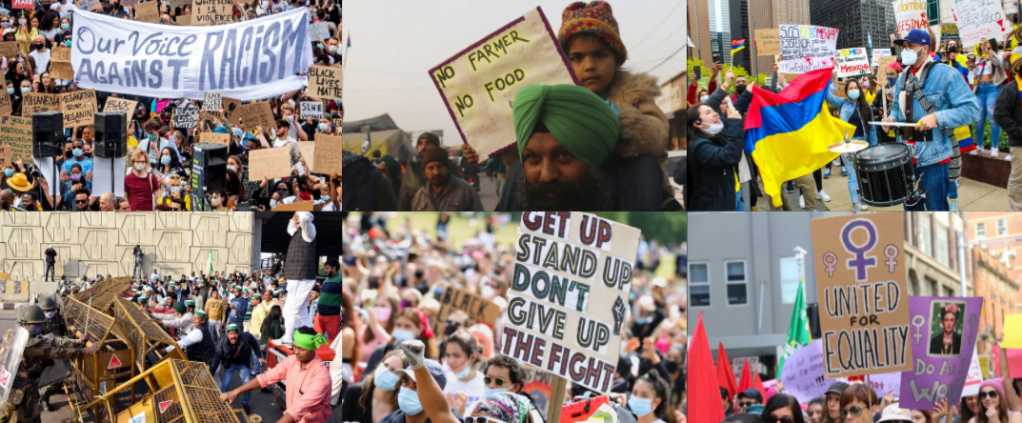
It is clear that we are not at a point in some progressive future with ample lessons but at a point in history where people will continue to move society towards a desirable system – a system that is just, representative of all, and consistent.
As Paolo Gerbaudo, a political sociologist at King’s College London, said: “They [protests] reflect the failure of nation-states in the global era. These movements may be the early symptoms of a new global crisis.”
Is Democracy Still Of the People, By the People, and For the People?
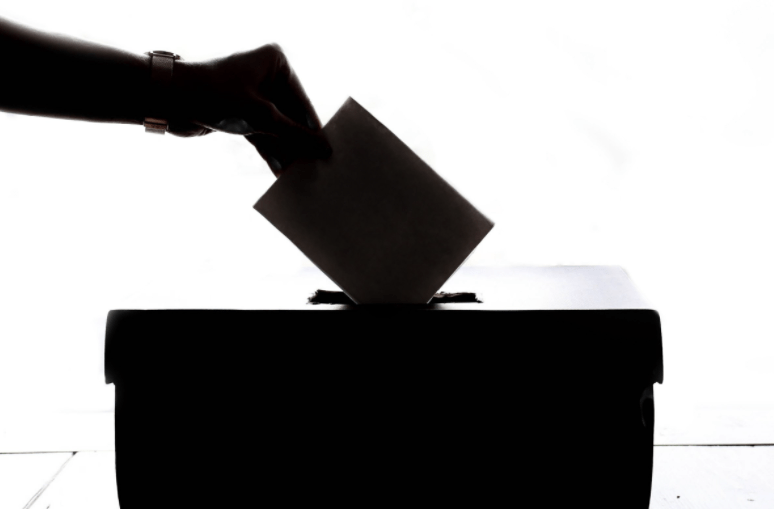
The world centuries ago saw widespread censorship, and empires that were not always representative of its people. As a result, the concept of democracy was conceived. In democratic settings, the government was meant to be “of the people, by the people, and for the people.” This means, for a democratic government to function, the people of that nation need to keep it in check and vocalize their demands.
Unfortunately, democracies have become a slippery slope where parties gain and stay in power by dividing its people and ignoring essential demands, i.e., democracies are seeing a rise in populist sentiment.
This is alarming as democracy was designed to prevent this. So, who and what allowed this? Apolitical people have played a vital role in making democracy redundant.
Being Apolitical: Yay or Nay?
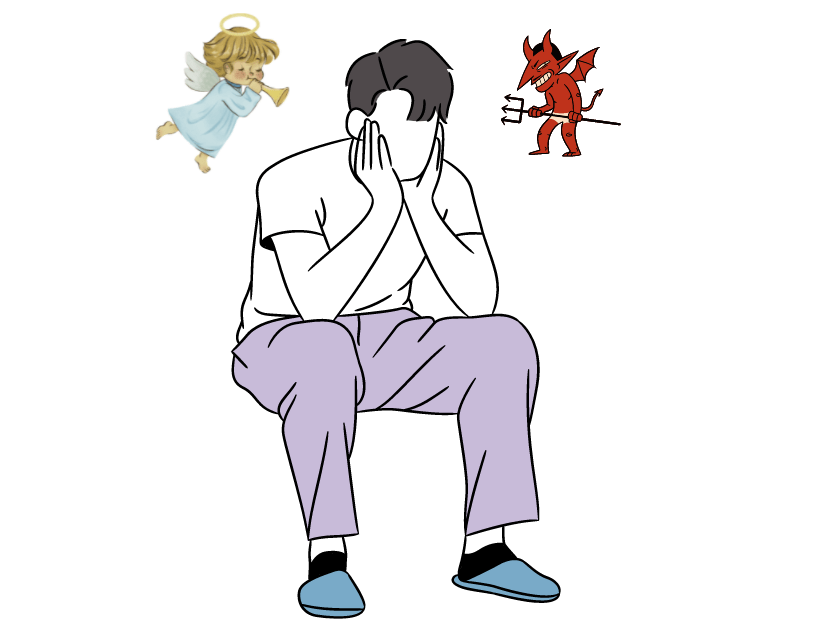
What does it mean to be apolitical? In simple terms, it refers to informed or uniformed neutrality or ignorance towards political issues. Some may say that being apolitical is political as it implies comfort with the existing circumstances.
People have traded independent research, voting, organizing, and participating in meaningful demonstrations and other means with believing whatever the state and the media feed them. Or, they abstain and classify politics as “for the corrupt” and dissociate it from their lives. Two-thirds of the people responding to my Instagram polls last week claimed that they have heard politics being for the corrupt, cunning, or those with money, muscle, and failures. That statistic is way higher than what it should be.
What many governments have become today is a result of toxic political participants, biased media, and uninformed people confidently taking up space. In contrast, the decent ones evade the field to protect their lives and sanctity. The knowledgeable abstain, and the vocal are silenced. How can we expect democracy to function if we do not use its tools? How can we protect the righteous from being silenced if most of us are too?
Despite this, about half of the poll respondents claimed that it was still okay to be apolitical. They stated several reasons, from which I will address the most common ones below.
Mental exhaustion from distressing content
Exposure to global affairs are undoubetedly distressing. Yet, our participation and solidarity could comfort and support them. We live in a globalized world where things are interconnected. For example, what is happening in Palestine still affects Indians as BJP officials claim that Israel inspires them, U.S. elections mattered as the president defines foreign policy.
Plus, if we aren’t there for other communities, can we expect other communities to be there for us? India is facing a severe COVID crisis, and many nations and people are providing support. Would this have been a reality if other governments and people wanted to mind their own business?
However, you cannot save the world if you don’t have the energy to do it, so it is still reasonable to take breaks when needed. The world has hundreds of issues, it is also okay to not be aware of and speak about all of them.
The cost of time in politics
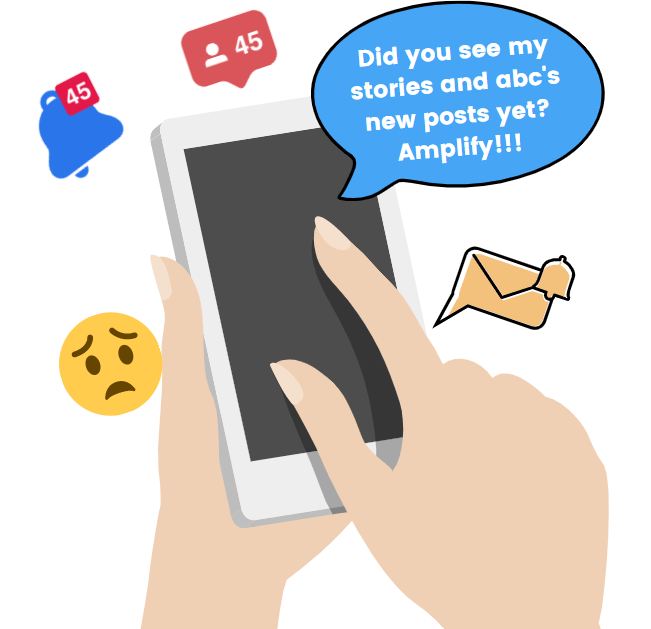
Social media is flooded with reposts with very few netizens verifying shared information. This makes the research process time-consuming for someone wanting to ensure authenticity of shared content.
We all have 24 hours in a day. Every hour spent has an opportunity cost – what else could one be doing instead? Some prefer working towards their goals and reach a larger platform instead of spending time for small momentary output, while others have other difficulties you won’t see publicly.
If someone wishes to be vocal but time is their only barrier, then they can find and share the works of pages and friends who have a reputation for authenticity and quality insights.
Plus, covering an issue does not need your full dedication and total coverage. In complicated cases, you can acknowledge simple overviews and leave out the details. For example, you don’t need to touch the legal background of Sheikh Jarrah, but that isn’t a good enough reason to ignore that one party is disproportionately committing human rights violations.
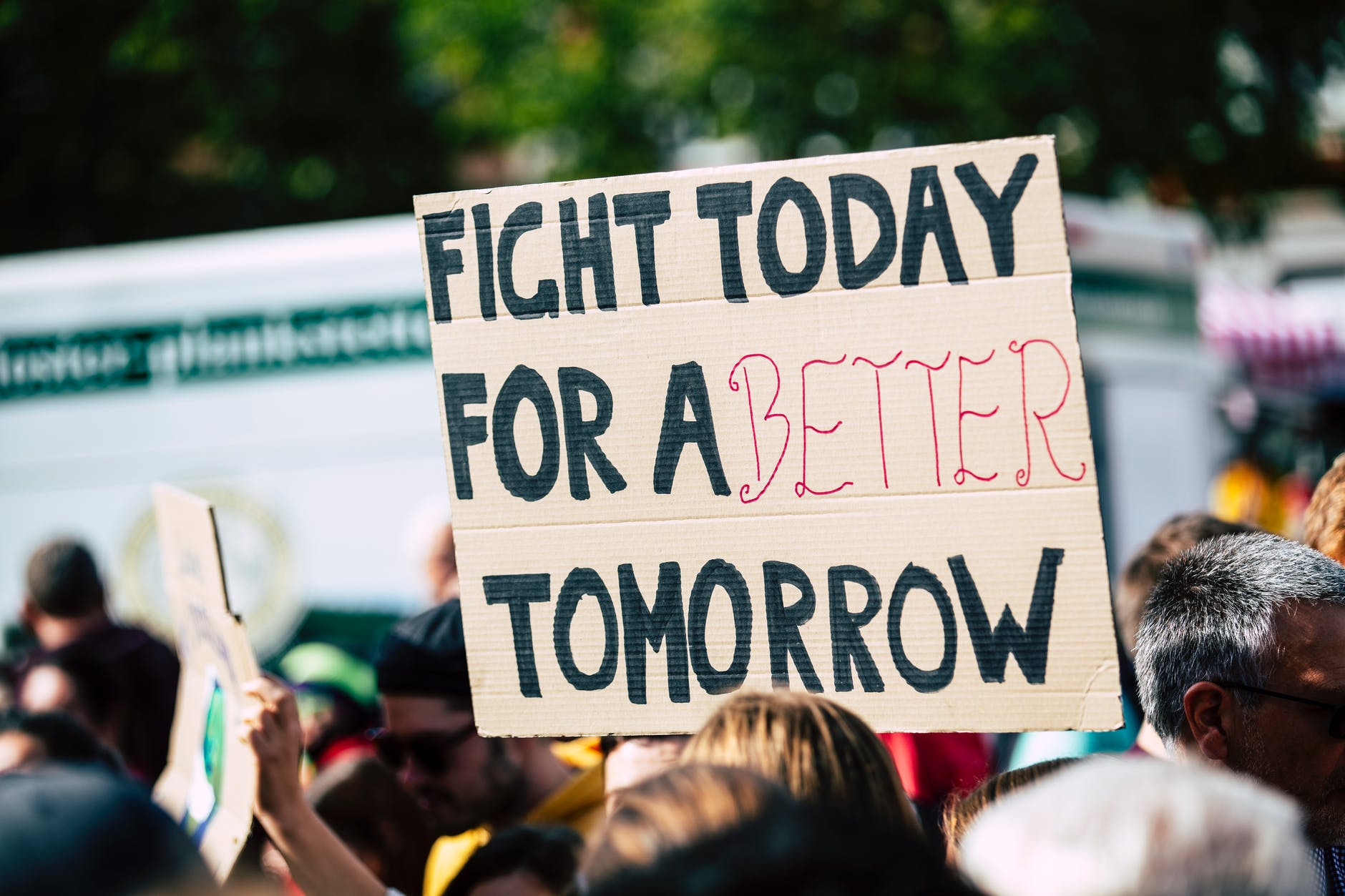
TheVigilantMind spends hours in research, content verification, and writing to bring quality insights to you.
The impact and effectiveness of actions
Mass movements can and do bring change without every individuals’ participation, even though it would increase its success. But, how do we decide who gets to take a back seat? Many presume that others are more effective change-makers.
When quality participation is directly proportional to a movement’s success, where will we be headed if responsibility is tossed around like a game of pass-the-parcel where the music never stops?
You don’t have to be a public figure or influencer who changes many lives to start off. Just changing even one is progress.
Freedom of choice and individuality
To some, they don’t owe a justification for being silent on their social media. It’s their personal space and not a town hall, so why should they shape their content as per the wants of others?
But, many factors come into play together. People play different roles and prioritize things differently. Everyone still has the same amount of time but diverse goals and responsibilities. Ultimately, it is unfair to show aggression towards people solely based on narrow and inconsistent observations.
What happens if too many people align apolitically? Political apathy still has a cost.
The Cost of Being Apolitical – Formulated
“I’ve not been that politically active before […] but COVID took someone who’s very close to our family in India and I don’t think she died of a disease, she’s a by-product of what our government has become,” said my 17-year-old friend, not less than a month ago.
For a long time, many remain directly unaffected by the government policies where we live in. Some of us are in a threatened category in our home country while we live outside or at a threat in our home country, which is not prominent. Yet, very few of us struggle daily against barriers in our lives created by governments and people who support them. Nevertheless, the last few years have showed us that politics will eventually get to you too. And when it does, it’s too late.
An Instagram poll I conducted showed that about 75% of its participants switched from being apolitical to vocal in the last two years. The reasons spanned across being among social groups that are discriminated against, to having friends in that category, and realizing their shared humanity and moral duty as global crises like feminism, anti-racism, and others unfolded.
It is good that many people realize this, whether to protect themselves or, empathetically, another community. Yet, in terms of many indicators that my very small-scale research could not encompass, we are still far. I created a spectrum to outline the range of negative affects politics may have on different social groups. This scale should outline best how privilege is not permanent, and political apathy is doom, sooner or later.
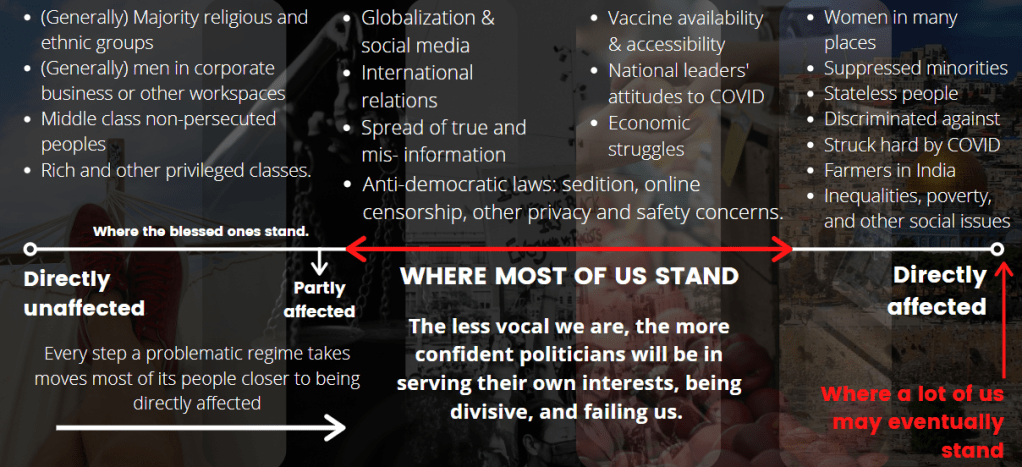
France is the perfect example for this. When they banned the Burqa, many remained silent and hailed it as a “progressive feminist moment.” But now, they’re banning gender-inclusive language in schools. Political apathy and insensitivity gave them the confidence to do this. Are they still the progressive and feminist state you once thought they were?
To conclude, we cannot predict how long our bubble will remain safe. Eventually, circumstances may head south and push you towards the spectrum of frequent and, eventually, daily insecurity.
Inaction gives oppressive regimes, and problematic systems and people the confidence to upscale and remain consistent. Being apolitical, is not just a contribution in digging other’s graves, but eventually yours too.
Some ways in which you can be politically or socially active
It is okay to draw your boundaries. We have limited time and resources, focus them on the causes you can most influence or hold close to you; it is not realistic to know and speak about everything. Being active doesn’t refer to daily actions or posting opinions 24/7, you’re free to decide when, what, and how you wish to act for causes.
- Independent research. Not just via news but even books, courses, and scholarly sources. You can then discuss and publish your informed opinions and actively oppose the bad fruit in your society.
- Writing and reposting is not the only way to push your opinions out there. You can also leverage art, poetry, public speaking, and other means.
- Be aware of the constitutional political tools you have at hand: can you contact your local representative? Can you discover and participate in nonviolent protests? What means can you use to influence domestic and foreign policy?
- Attend, volunteer for, and host events seeking to solve social causes (inequalities, discrimination, people of determination, etc.). Social causes are tied to politics, and you can still make change without directly tackling politics.
- Listen to podcasts and discussions to learn more about global affairs and what you can do. Consider checking out The Written Revolutions‘ podcast on Spotify or Apple.
- Follow Instagram pages and comment on their posts to amplify your message if your account is small. In light of current world events, some meme pages have been pinning awareness messages on their meme posts (@colorful).
- With global issues and government irresponsibility towards COVID worldwide, now is the perfect time to show people that life and politics are not separate things but overlapping. Share this post; amplify.
What are some ways you contribute socially and politically? What are some ways you want to recommend or implement in your life in the future?

Great work! Loved this
LikeLiked by 1 person
Great work! Loved this
LikeLiked by 1 person
Thank you!
LikeLike
Quite interesting!
I have a question, and it’s this: I basically got nominated for one of those blogging awards (see here: https://thegworlddotblog.wordpress.com/2021/05/13/%f0%9d%95%8b%f0%9d%95%99%f0%9d%95%96-%f0%9d%95%86%f0%9d%95%a6%f0%9d%95%a5%f0%9d%95%a4%f0%9d%95%a5%f0%9d%95%92%f0%9d%95%9f%f0%9d%95%95%f0%9d%95%9a%f0%9d%95%9f%f0%9d%95%98-%f0%9d%94%b9%f0%9d%95%9d/ ), so I was wondering whether I could nomiate you in the list of nominees that I would make, or whether you tend not to get into that side of blogging. Do please let me know!
LikeLike
Hey, thank you for your comment. Sure, you can nominate me. But what exactly do I have to do after the nomination? I don’t quite get what do you mean by side of blogging.
LikeLiked by 1 person
So firstly, after nomination, you’d be expected to create a post answering 7 questions that I give in my post, nominating another up to 10 bloggers that have not yet been nominated, and give them a further 7 questions you’d come up with yourself.
And by a different side of blogging lol, I meant like the less professional, more day-to-day sort of stuff many other bloggers do, if you get what I mean.
LikeLike
You never cease to amaze, Amaan!
LikeLiked by 3 people
Thank you so much! I’m glad.
LikeLike
[…] Did you know, being apolitical has several negative implications in the long run! Interested to know what they are and how you can be more involved even in small ways? Read this post: ‘The Cost of Being Apolitical‘. […]
LikeLike
[…] Did you know, being apolitical has several negative implications in the long run! Interested to know what they are and how you can be more involved even in small ways? Read this post: ‘The Cost of Being Apolitical‘. […]
LikeLike
[…] to have come a long way from history thinking that we have learned from the past? In my post on The Cost of Being Apolitical, I discussed how the contemporary world is nothing but another time in history that needs social […]
LikeLike
[…] in democratic principles is not unique to India. It is a global phenomenon. In my article, “The Cost of Being Apolitical,” I call upon readers to hold political opinions and be alarmed at the trajectory nations are […]
LikeLike
[…] The Cost of Being Apolitical – https://thevigilantmind.com/2021/05/16/the-cost-of-being-apolitical/ […]
LikeLike